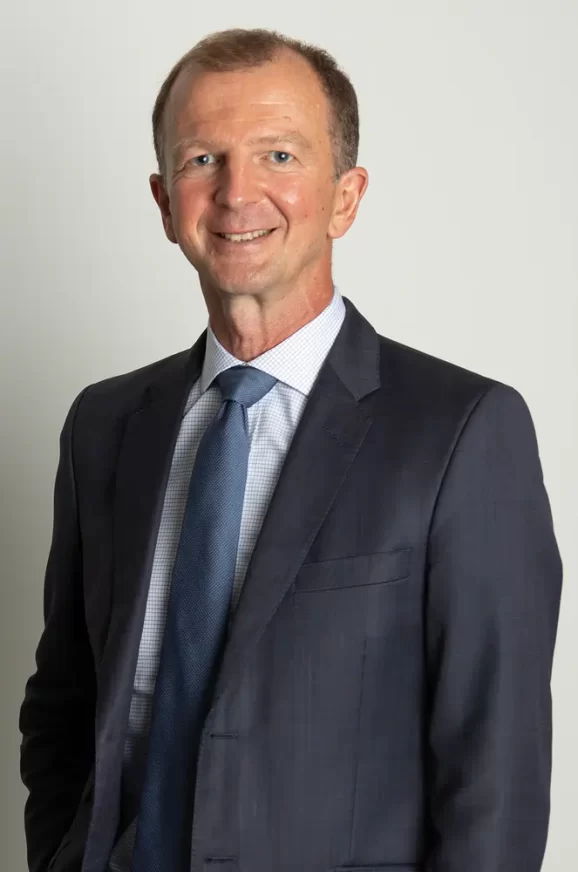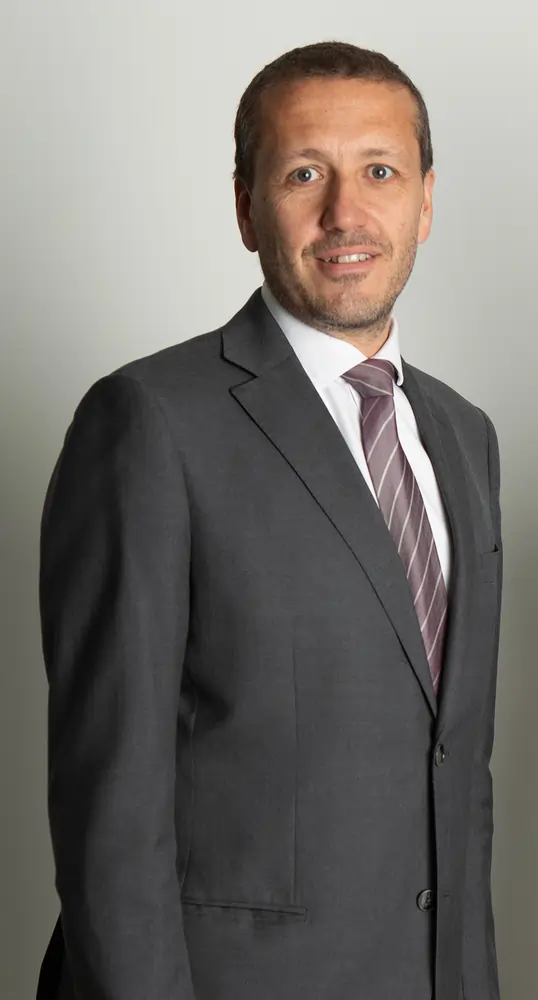From ideas to results

John E. Kaye
- Published
- Home, Technology, Uncategorized

Jean-Philippe Grosmaitre and Claudio Molinaro of L.E.K. Consulting examine the art of converting ideas into action to deliver the fruitful corporate transformation that disruptive trends demand
In recent years, demand for corporate change has risen to unprecedented levels. In the post-pandemic era, rising labour markets and geopolitical tensions have ramped up stakeholder expectations that corporate executives confront these changes, and adapt to an ever more volatile, uncertain, complex and ambiguous (VUCA) world. Torn between short-term fixes and long- term vision, business leaders are struggling to articulate strategies that best adapt to change, and build sustainable operating models that create lasting value.
To find out more about how to deliver sustainable corporate transformation in this challenging new environment, Managing Change met with Jean-Philippe Grosmaitre and Claudio Molinaro – leaders of the European Organisation & Performance practice at L.E.K. Consulting.
How would you define the changes facing the modern business leader?
Jean-Philippe Grosmaitre: Every corporate executive is feeling an acceleration of change in their daily working life and the resulting increase in volatility. While the stakes for change are rapidly increasing, there is a general feeling that the traditional five-year plans companies rely on to plan for change can quickly become irrelevant. As a change expert, I always look for clarity on the difference between “imposed” change and “voluntary” change. Imposed change is driven by external factors. These can be brutal, like the Covid crisis, or progressive, like the transition to the euro, but all call for the ability to adapt. Voluntary change has always been viewed as progressive for obvious ethical reasons. This went on to materialise as new strategic visions had to be implemented within five to ten years. In a VUCA world with the costs of hazards, errors and inaction dramatically increased, this vision can be seriously challenged. Nevertheless, for me, corporate transformation has never been as useful as it is today, provided it is able to efficiently convert strategic decisions into actions and results.

Can you elaborate on the major calls for change that you observe at a corporate level, and the challenges they bring?
Claudio Molinaro: It is no surprise that in Europe, sustainability is at the top of the list of demands, but we should also not forget demographics, with issues including the retirement of baby boomers, the huge impact of technology, such as artificial intelligence, and geographical footprint in the midst of exacerbated geopolitical tensions. All of these pose the challenge of rising transition costs due to increased complexity, and the need to adapt to more uncertainty. Executives know that they can destroy a lot of value with siloed – and ultimately expensive – responses, and at the same time they are struggling with constrained resources.
How do you resolve the dilemma between higher stakes and limited room to manoeuvre?
JPG: For us, the massive changes at work, such as the transition to net-zero, digitalisation, or to
a lesser extent footprint relocations, are no more, but no less than corporate transformations. For sure, they require an ever-increasing line-up of bold commercial choices to clarify the strategy, and then the design of an agile transformation with highly efficient operational decisions. The higher stakes and reduced room to manoeuvre that organisations are experiencing is comparable to turnaround situations when companies face a series of critical choices to be made with limited cash reserves. Success comes from making a few key strategic choices, agility, and a disciplined change process.
CM: I would like to come back to the notion of transition costs and limited room to manoeuvre. It is key to recognise the power of innovation here: yes, tech disruption can put major business units at risk in their market, but it is also a very powerful tool to shrink cost structures, overcome overly high transition costs and ultimately create value. I bet that innovation will play an even bigger role in the transition to net-zero, with stakes of higher magnitude calling for commensurate responses.
Isn’t there a sense of “change fatigue” amongst corporations with the potential to block these large transformations?
JPG: I think that change fatigue is driven by vicious circles, whereby people are confronted with contradictory instructions. We have all seen examples where a lack of leadership, unclear priorities or responsibilities, poor communication, or a lack of decisive action starts to bug the people that companies rely on. Losing momentum, the organisation burns out its change agents as they make multiple efforts with poor results, and this quickly destroys trust in the project. In contrast, we have seen corporations that really wake up when the stakes are rising, and mobilise in an unexpected way. Corporate forces contribute to change when they recognise enthusiasm – hence the importance of a strong strategic vision.
CM: We think that leadership and governance will play a decisive role in the near future. Executives will need to make more difficult choices with more value at stake, and boards will need to form an independent view and challenge them to ensure optimal stakeholder value. The rise of activist investors demanding their campaigns faster, and deeper corporate changes to create value, is a powerful example of the strengths at work to accelerate corporate transformation.

In this new context, how are you helping organisations to respond?
JPG: At L.E.K., we help companies shape their strategic choices and design transformation programmes that deliver on them. Our industry experts help assess the robustness of a corporate portfolio, its competitive positioning, and areas where disruption can bring potential value. Doing this requires a deep understanding of market drivers and demands very strong analytical skills to assess various options. Our ability to do this delivers the best commercial options for management teams to clarify their strategy choices.
CM: Once this is laid out, our transformation experts help reconfigure the operating model of the company to implement this new strategy, identifying the talent and other resources needed. They also work on performance metrics and communication to prepare for change. They then design and execute the transformation in partnership with the company, taking on a role that accelerates the change with hands-on problem-solving capabilities.
How do you ensure that disruptive trends at work are best integrated into your client transformations?
JPG: The L.E.K. Sustainability Centre of Excellence is capitalising on the numerous projects we do each year, building best-in-class expertise to share across our client base. No one can ignore what is at stake in this industry but also at a societal level. We feed all our projects with this know-how to ensure they all benefit from industry-leading thinking on what the sustainability transition means for our clients. Similarly, we have invested in a digital factory that enables us to better test new markets and accelerate client experience. Finally, we have developed new analytics and AI capabilities, enabling our experts to provide innovative ideas and deeper market simulations to inform strategic decisions.
CM: In parallel to this, we have significantly developed our execution and change management capabilities in the Organisation & Performance practice. This is a dedicated team with a set of skills that allow for a much more hands-on and problem-solving approach, and the ability to make a tangible impact and create measurable value. We see ourselves as a Rapid Action Force to be leveraged by our clients to ensure all areas of the transformation are covered, with no blind spots; for example, on workstreams that lack sufficient resources within the company to be successful.
What separates you from other consultants in the way you operate with your clients?
JPG: To make change stick, we mobilise experts dedicated to transformation, with complementary skills such as manufacturing, sourcing, salesforce excellence, etc. Most of our senior members have had senior corporate roles and they understand how to best problem-solve key operational issues relating to the transformation with bold, pragmatic and actionable recommendations. We challenge the status quo and bring best practices on both commercial and operational aspects.
CM: Yes, we fully engage with our clients to forge a consensus around credible and executable solutions that they will live with. But in line with L.E.K.’s DNA and culture, we also bring significant market feedback, with bespoke benchmarks and expert views to provide our clients with relevant and proven value creation levers. We work hard to deliver rapid results that make a difference on the bottom line, with sustainable improvement measures rather than blind-sighted cost cuts.

Finally, any last tips for companies on managing change in the strategic transformations they already have under way?
JPG: More than ever, it is vital that management creates a comprehensive and mobilising vision of options, with a strong rationale and a robust assessment of feasibility in terms of the resources available. Executives should realise that “business as usual” is now the exception; for current strategic choices to be successful, major resources will need to be deployed and many more informed decisions will need to be taken. When you think about the complexity of carmakers switching from the internal combustion engine to electric vehicles, it is easy to see that no sector will be immune from similar changes. This is why you need experts that bring state-of-the-art thinking on the best options available and an up-to-date understanding of the related impacts in value creation, capture and protection.
CM: To get back to your initial question, in the current world, companies should seek and value agility even at the cost of a few basis points of results. We have seen too many costly transformations that did not deliver results because of their lack of agility – cases where sticking to the plan has even jeopardised their company’s future. Conversely, I am very optimistic that technical progress will help overcome many of the current challenges and that taking this into account early enough will create significant value if organisations take the appropriate approach to effective transformation.

JEAN-PHILIPPE GROSMAITRE
Jean-Philippe is a Partner in L.E.K.’s Paris office and a member of the global Organisation & Performance (O&P) practice. With over 17 years of consulting experience and 10 years in Corporate Management for Private Equity- owned and listed companies, Jean-Philippe has led many transformational projects for small, mid-sized and large companies in an international context, in industries such as food & agribusiness, life sciences and pharmaceutical, automotive, aerospace and business services. Jean-Philippe’s experience includes M&A value creation, performance improvement and operational turnaround.
He regularly assists private equity funds on sell/buy-side value creation assessment and portfolio improvement projects.
Prior to joining L.E.K., Jean-Philippe was a lead Partner of M&A Operations at Deloitte Financial Advisory. Before that, he worked with Alvarez & Marsal as a Director, at Chargeurs as M&A Director and Chief Restructuring Officer and CPI as Managing Director.
Jean-Philippe received a Master of Science from École Centrale Paris and a Master of Business Administration at INSEAD.

CLAUDIO MOLINARO
Claudio is a Partner in L.E.K. Consulting’s Paris office and a member of the global Organisation & Performance (O&P) practice. He brings 18 years of experience in consulting and industry roles. He has led complex transformation and performance improvement projects for both large corporates and private equity portfolio companies in a variety of industry sectors, including building materials, metals, business services, chemicals and pharmaceutical manufacturing.
Claudio’s experience includes performance improvement, cost takeout and operational turnaround in both SMEs and large group environments. With his operational and financial background, Claudio also conducts operational due diligence assignments for private equity funds, focusing on defining value creation opportunities and managing execution risks.
Prior to joining L.E.K., Claudio was a Partner at Deloitte Financial Advisory. Before that, he worked with FTI Consulting as a Managing Director in Corporate Finance and Restructuring, with Schüco and ArcelorMittal.
Claudio has a degree in Business Administration from ESSEC.

L.E.K. Organisation & Performance helps its clients transform their business and achieve higher operational performance. Join Jean-Philippe Grosmaitre on 27 September 2023 for an L.E.K. webinar with Partner Philip Roux for a lively and informative discussion about the ways to tackle the impact of inflation head-on.
Click here to register for this free event!
Further information
www.lek.com/organisation-performance
RECENT ARTICLES
-
 AI-driven phishing surges 204% as firms face a malicious email every 19 seconds
AI-driven phishing surges 204% as firms face a malicious email every 19 seconds -
 Deepfake celebrity ads drive new wave of investment scams
Deepfake celebrity ads drive new wave of investment scams -
 Europe eyes Australia-style social media crackdown for children
Europe eyes Australia-style social media crackdown for children -
 Europe opens NanoIC pilot line to design the computer chips of the 2030s
Europe opens NanoIC pilot line to design the computer chips of the 2030s -
 Building the materials of tomorrow one atom at a time: fiction or reality?
Building the materials of tomorrow one atom at a time: fiction or reality? -
 Universe ‘should be thicker than this’, say scientists after biggest sky survey ever
Universe ‘should be thicker than this’, say scientists after biggest sky survey ever -
 Lasers finally unlock mystery of Charles Darwin’s specimen jars
Lasers finally unlock mystery of Charles Darwin’s specimen jars -
 Women, science and the price of integrity
Women, science and the price of integrity -
 Meet the AI-powered robot that can sort, load and run your laundry on its own
Meet the AI-powered robot that can sort, load and run your laundry on its own -
 UK organisations still falling short on GDPR compliance, benchmark report finds
UK organisations still falling short on GDPR compliance, benchmark report finds -
 A practical playbook for securing mission-critical information
A practical playbook for securing mission-critical information -
 Cracking open the black box: why AI-powered cybersecurity still needs human eyes
Cracking open the black box: why AI-powered cybersecurity still needs human eyes -
 Tech addiction: the hidden cybersecurity threat
Tech addiction: the hidden cybersecurity threat -
 Parliament invites cyber experts to give evidence on new UK cyber security bill
Parliament invites cyber experts to give evidence on new UK cyber security bill -
 ISF warns geopolitics will be the defining cybersecurity risk of 2026
ISF warns geopolitics will be the defining cybersecurity risk of 2026 -
 AI boom triggers new wave of data-centre investment across Europe
AI boom triggers new wave of data-centre investment across Europe -
 Make boards legally liable for cyber attacks, security chief warns
Make boards legally liable for cyber attacks, security chief warns -
 AI innovation linked to a shrinking share of income for European workers
AI innovation linked to a shrinking share of income for European workers -
 Europe emphasises AI governance as North America moves faster towards autonomy, Digitate research shows
Europe emphasises AI governance as North America moves faster towards autonomy, Digitate research shows -
 Surgeons just changed medicine forever using hotel internet connection
Surgeons just changed medicine forever using hotel internet connection -
 Curium’s expansion into transformative therapy offers fresh hope against cancer
Curium’s expansion into transformative therapy offers fresh hope against cancer -
 What to consider before going all in on AI-driven email security
What to consider before going all in on AI-driven email security -
 GrayMatter Robotics opens 100,000-sq-ft AI robotics innovation centre in California
GrayMatter Robotics opens 100,000-sq-ft AI robotics innovation centre in California -
 The silent deal-killer: why cyber due diligence is non-negotiable in M&As
The silent deal-killer: why cyber due diligence is non-negotiable in M&As -
 South African students develop tech concept to tackle hunger using AI and blockchain
South African students develop tech concept to tackle hunger using AI and blockchain



























